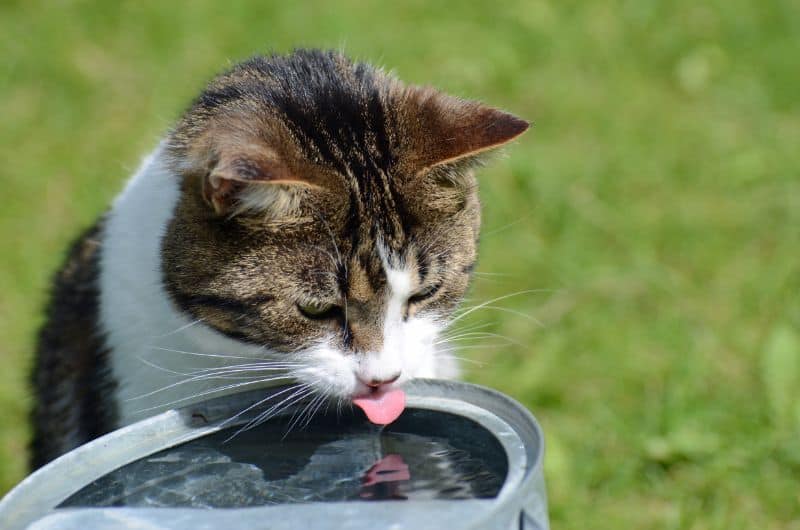When It Comes to Pet Dehydration, Prevention Is Key

Perhaps your pup’s practice is to gulp down a few swallows of water after a walk or playtime – no more, no less. Sure, they might sneak a drink when you’re not around, but really, how much are they drinking in a day?
The best way to gauge pet hydration is to measure how much water you put in the bowl every morning vs. how much is left at night (if any). Of course, you’ll have to subtract a few ounces for sloppy drinkers, those that love to splash, and evaporation. Only then can you know exactly how much they’re drinking, and whether or not it’s enough.
The Rule of Thumb for Pet Hydration
On average, a dog should drink about 1 ounce of water per pound of body weight every day. In other words, a 25 pound pet needs approximately 3 cups of water daily. This may seem like a lot, but think about how many times you bend down to pick up their bowl. It may very well be 2-3 times a day (especially if it gets a bit slimy in there!).
Heat & Exertion
Their daily consumption may change based on the season and activity level. For instance, in the heat of the summer, they may drink far more than during the coldest months of the year. Likewise, if they are running and playing more, they will need more hydration to replace what they lose during exercise.
But They Don’t Sweat
It’s true, dogs don’t sweat like humans, but they do secrete moisture from their paw pads to help them regulate internal body temperature. Panting is the primary method for cooling down, and you may notice saliva dripping from a thirsty pet’s tongue.
Little Sips
Pet dehydration causes various symptoms, and it is incredibly important to stay on top of any of the following:
- Pacing
- Drooling
- Changes in behavior or personality
- Looking for something to drink
- Pale, dry, tacky gums
- Loss of skin elasticity (gently pinch the scruff of the neck; if it springs back into place quickly, pet dehydration is not an issue)
- Diarrhea or vomiting
- Sunken, dry eyes
Pet dehydration can trigger a bonafide emergency situation. Please act quickly and bring your pet in.
Reversing Pet Dehydration
Animals should not overdrink when dehydrated because it can cause vomiting. Instead, they need little sips of cool or room temperature water spread out over time.
As a friendly reminder, it is critical that a pet avoid the risks associated with heat stroke. A big part of this prevention is to keep them happily hydrated throughout the summer. Try the following ways to keep cool:
- Invest in a small kiddie pool, or dog-friendly sprinklers
- Offer lots of frozen pet treats
- Always walk your dog at dawn or dusk
- Provide lots of shade and ventilation at home
- Engage in the practices of swimming safety
As always, if you have additional questions or concerns about pet dehydration, our team at Animal Medical Hospital & 24/7 Urgent Care is always here for you.
